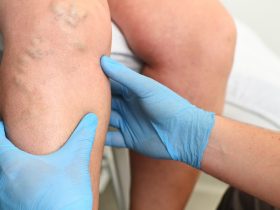The conversation at the recent Miami Breast Cancer Conference took a turn from the usual when Anees Chagpar, MD, professor of surgery at the Yale Comprehensive Cancer Center, took the podium to advocate for the value of research and encourage those healthcare providers in the audience to join her in becoming researchers, especially those who might have never considered themselves to be “researchers.”
Dr. Chagpar asked those listening to understand that research was not an activity that should be limited to the “ivory tower” or to the lab. Instead, she said, it could readily be part of a clinical practice.
What kind of research to pursue.
To showcase the diverse roads that research can take, Dr. Chagpar shared a list provided by the National Accreditation Program for Breast Centers (NAPBC) to indicate the sort of research projects that interest that organization:
- Primary prevention
- Early detection
- Quality-of-life evaluation and recommendations
- Symptom management
- Economics of care
- Diagnostic and screening trials
- Psychosocial interventions
- Prospective cohort studies
How to get started.
For those who are new to research but interested and wondering where to begin, Dr. Chagpar advised, “Unlock your inner two-year-old!”
“We all have an innate curiosity, and that’s what we need to harness,” she continued. “You don’t need to have a brilliant idea. You just need to be curious.”
Once a healthcare professional has identified a question that is of interest, the next step is to consider the study design, Dr. Chagpar said:
“You can use established data sets. You can use your own patient database. You might conduct a survey. That’s research.” In short, someone interested in research has several options besides engaging in a randomized controlled trial, although that certainly is also worth consideration, she said.
Key steps and concerns.
Before diving in to a research project. Dr. Chagpar recommended checking off each item on this list:
- Remember to seek out IRB approval for any study involving human subjects, but remember also that some studies may be expedited or exempt.
- Apply for funding, if needed, but remember that not all studies require money.
- Have a clear understanding of how you will acquire and analyze the data.
- Plan for inevitable bumps in the road.
For those concerned that they don’t have sufficient resources or knowledge to engage in research alone, Dr. Chagpar encouraged them to “find collaborators” and “make friends!”
Please remember to share.
Finally, Dr. Chagpar spoke to the importance of sharing the results of any research by publishing and presenting findings at meetings to whatever extent is possible.





